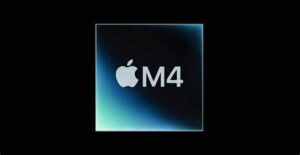- Prediction 1: Integration of applications on mobile devices starts to affect user purchase decisions.
- When one looks at where the differentiators are in mobile devices, much has changed over the last sevral years.
- I see four areas where differentiation can occur: hardware, user interface, applications and ecosystem.
- Apple has blazed a trail which everyone else has followed meaning that:
- Every man and his dog offers a graphically rich user experience with cool transitions these days.
- All the devices pretty much look the same.
- Most applications are available on all of the major platforms at the same time.
- This basically means that all that is really left to differentiate on is the ecosystem.
- This is a bit of a generalisation where I see the following exceptions:
- High quality components can affect the user experience meaningfully
- Microsoft is highly differentiated in the user experience.
- Samsung can still make a difference with form factors with the advent of bendable displays this year.
- Versions of applications written for iOS tend to work better than those written for Android.
- Outside of this, I think that it will be the ecosystem itself that makes the difference to the purchase decision.
- Here there are two factors that I think will be relevant.
- First: ease of use and set up.
- This is far more than just turn the phone on and make calls. It must also include, email, Facebook, Twitter and so on as well as integration with other devices and data stored on them.
- Apple scores well on this front as its pretty simple and easy to get everything working as its all pre-configured and ready to go.
- Microsoft is showing signs of also working well under this criterion but it is early days.
- Android fares badly. There are so many choices for every function and getting them to work well together is a feat of systems integration.
- If you are not a geek then don’t bother.
- Second: integration of applications.
- The functionality and utility of applications can be greatly enhanced if they are able to share data with each other.
- An example of this would be Facebook presence and messaging from within the contact application or the ability of the YouTube application to suggest trailers to watch based on media resident in other applications such as music and video players.
- This requires the operating system to keep application data outside of applications such that other applications can see and get access to it.
- This is an area where substantial improvements could be made to the user experience and is a potential weak spot for Apple.
- This is because outside of the core applications written by Apple, every app is an island.
- The data is stored within its own sandbox and no other application can get access to it.
- Neither Microsoft nor Android suffer from this problem but I suspect that Microsoft is much further ahead in terms of making it a reality on devices.
- 2013 is still likely to be a year of land-grab at the super cheap, barely works, I-have-just-bought-my-first-smartphone-to-be-like-everyone-else segment but at the higher end of the market people are already asking what is next?
- Application integration is high on my list of suspects and by the end of this year, I expect this to have registered in the minds of high end users and application developers.
- This will be a problem for Apple, but I suspect the real excitement will be felt by Microsoft sticking the knife into Android.









Blog Comments
tatilsever
January 3, 2013 at 9:58 pm
“This will be a problem for Apple, but I suspect the real excitement will be felt by Microsoft sticking the knife into Android.”
I also thought MS would grab market share from Android and why not? It is a more polished implementation of a similar business plan, one OS supplier with many hardware makers. However, my personal observation has been the opposite. I’ve had four coworkers buying WP8 Lumias and they all used to be iPhone users. I guess that makes sense. Consumers don’t care about the business structure. For most Android users, UI polish is not a high priority compared to customization, large screens or price. If the main selling point of a mobile OS is the UI, maybe I should not have been surprised that the customers willing to give it a go are more likely to be the ones drawn to iPhone in the past.
windsorr
January 4, 2013 at 1:35 pm
I suspect that that is about price,. The Lumia 920 is not a cheap device and techy geeks such as your co-workers are probably not a representative sample. . The story for Windows 8 is devices cheaper than iPhones for those that cant or wont afford them offering a better expereince than messy Android. Thats where you will see the volumes,. A few tech-savvy bods trying WP8 for a laugh are not going to move the volume needle.
RFM 2013 Top 5 – Part 3 – Android vulnerable | Radio Free Mobile
January 7, 2013 at 10:57 am
[…] I see the possibility for integration on mobile devices to become increasingly important during […]